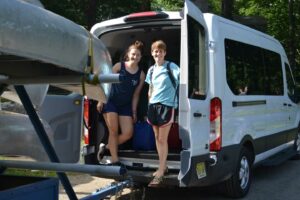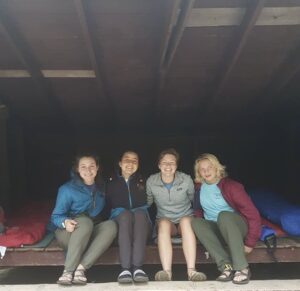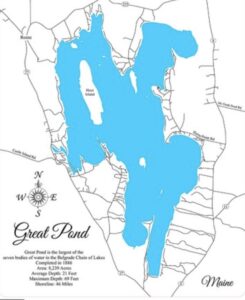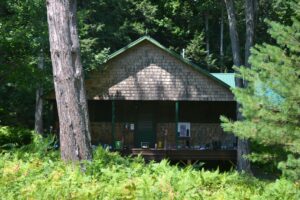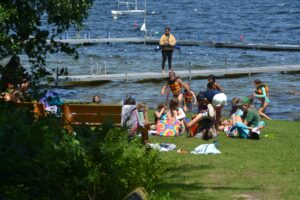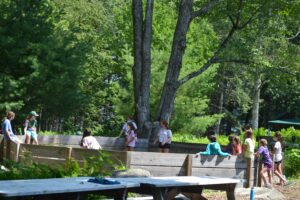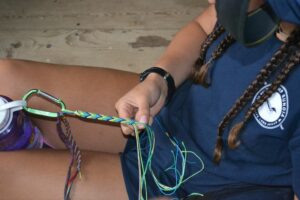
When you hear the phrase “just camp things!” what do you think of first? Have you ever had a moment when you realized a normal part of your life was actually not a regular thing for everyone else? There’s a good chance that “it’s a camp thing.”
Recently, I’ve been going to fitness classes where we spend 20 minutes biking, 20 minutes lifting, and 20 minutes doing yoga. I have short, thick hair so I have to get a little creative for it to stay put through three completely different activities. So, I’ve showed up to classes with every version of braids, french twists, and bobble ponies you can possibly imagine.
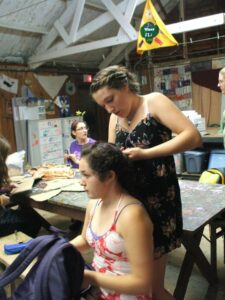 Normal, right? But it has shocked me how many adults have asked me how I know how to french braid – doesn’t everyone!? But I’ve realized that it was summers spent with “sisters” unrelated to me in braid trains by the lake that afforded me this skill – an experience not many people get to have, I’ve learned. Even as an adult at camp, two braids just can’t be beat for a long day on the waterfront!
Normal, right? But it has shocked me how many adults have asked me how I know how to french braid – doesn’t everyone!? But I’ve realized that it was summers spent with “sisters” unrelated to me in braid trains by the lake that afforded me this skill – an experience not many people get to have, I’ve learned. Even as an adult at camp, two braids just can’t be beat for a long day on the waterfront!
The phrase “just camp things” reminds me of friendship bracelets on water bottles, weeks without a phone, singing nonsense songs, skits, footie pajamas, costumes galore, moo-offs!
But it’s not just the skills to braid hair or twist embroidery floss into patterned bracelets that are unique gains from camp. Without camp, my friend group wouldn’t have a go-to fire builder when we get together. Maybe you would have never stepped foot on a sailboat, or ridden a horse. Perhaps we would all have a harder time taking a step away from our phones and other technology without knowing we can actually do it for days and weeks on end.
As we get another day closer to camp 2022, I feel so much gratitude for the “just camp things” ahead of us. For all of us currently in the ‘real world’ patiently waiting for our ‘camp world’, the silly novelties of camp life can’t come soon enough. Where else can you rock your tropical shirt Mondays, tie-dye Tuesdays, pigtail Fridays, and footie PJ Sundays with pride?! Nowhere but Runoia!
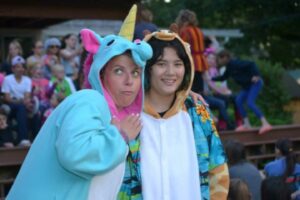
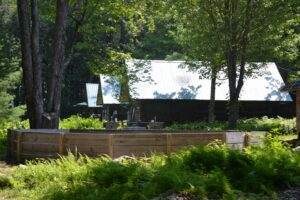
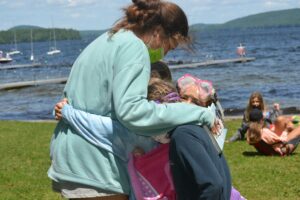
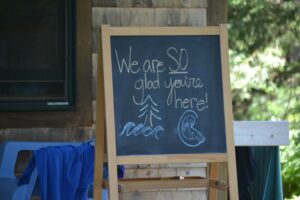
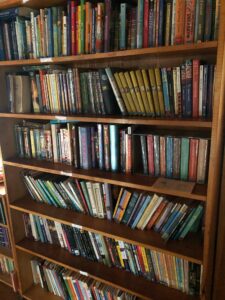
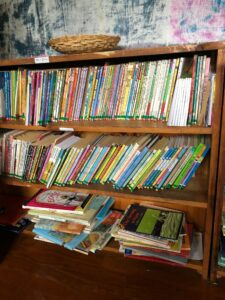
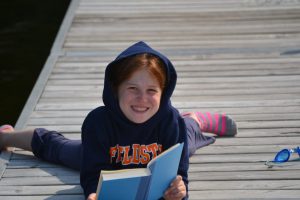
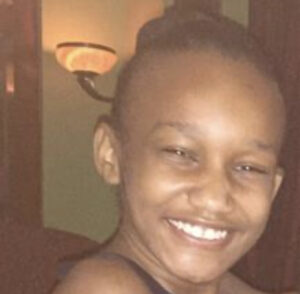
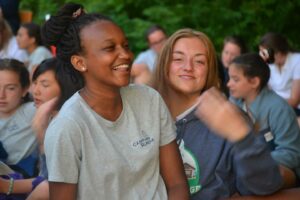 growing up, so during the summer at camp I looked forward to the traditions of having campfires and singing the songs that correspond, every weekend. I looked forward to having braiding circles every night before going to sleep. Most of all, I looked forward to our annual competitive team games. Sailing regattas, swim races, soccer and softball
growing up, so during the summer at camp I looked forward to the traditions of having campfires and singing the songs that correspond, every weekend. I looked forward to having braiding circles every night before going to sleep. Most of all, I looked forward to our annual competitive team games. Sailing regattas, swim races, soccer and softball 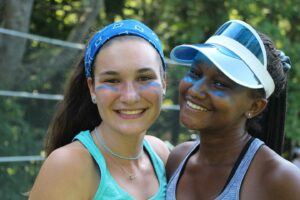 Being a leader has always been natural to me as I am a very outgoing, outspoken person. At camp, there was never a time I did not want to volunteer to participate in something or be elected to be captain. As team captain, I would organize plays for sports and come up with new events for both teams. I also led my team to three victorious summers in a row, might I add. Though those were low-stakes things, they inspired me to get more active during the year with other leadership positions in my national organization and school. Pre-Covid, I held positions such as Nominating Chair and Recording secretary for my organization Jack and Jill Of America Inc., Very different from each other, as I can say there was no cheering or chanting but required the integrity and proactive skills I once learned at camp. Moving up the ladder, I held the position of Vice President and, in the same year, as President of my school’s Black Student Union, which, although virtual, was nothing short but exciting.
Being a leader has always been natural to me as I am a very outgoing, outspoken person. At camp, there was never a time I did not want to volunteer to participate in something or be elected to be captain. As team captain, I would organize plays for sports and come up with new events for both teams. I also led my team to three victorious summers in a row, might I add. Though those were low-stakes things, they inspired me to get more active during the year with other leadership positions in my national organization and school. Pre-Covid, I held positions such as Nominating Chair and Recording secretary for my organization Jack and Jill Of America Inc., Very different from each other, as I can say there was no cheering or chanting but required the integrity and proactive skills I once learned at camp. Moving up the ladder, I held the position of Vice President and, in the same year, as President of my school’s Black Student Union, which, although virtual, was nothing short but exciting.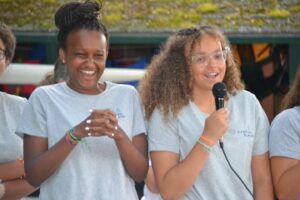
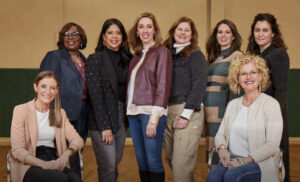

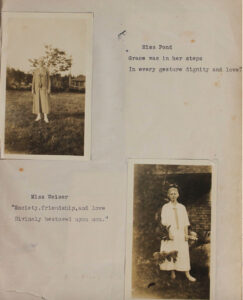
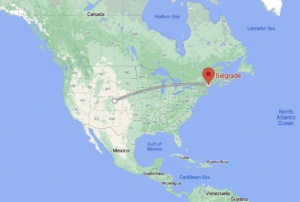
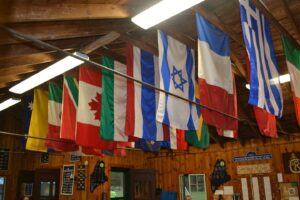
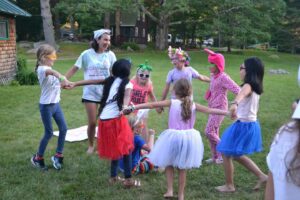
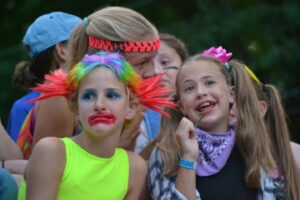
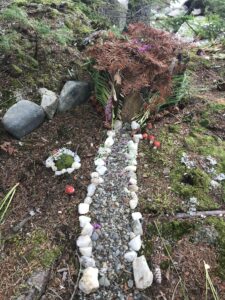
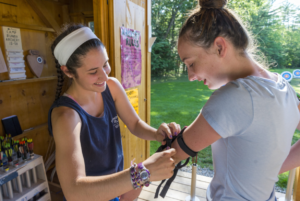 try new things, build our skills, and learn from new perspectives. Our campers understand the value and thrill (and, in all honesty, nervousness) of trying something brand new, and the bravery of attempting the next level. Many of our
try new things, build our skills, and learn from new perspectives. Our campers understand the value and thrill (and, in all honesty, nervousness) of trying something brand new, and the bravery of attempting the next level. Many of our 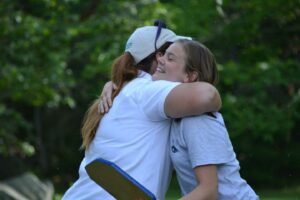
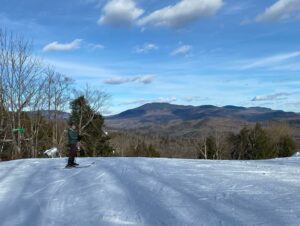 s every few hundred feet.” But a growth mindset tells Mackenzie that even after hard falls, she has the ability to learn and grow: “After big wipeouts that knocked the wind out of me I’d sit and catch my breath wishing I learned at the age of 3 like it seemed everyone else on the mountain had. After studying the way others moved, advice from friends who ski, and a beginners lesson, I learned new skills one at a time.” Mackenzie closed out our conversation with some serious growth-mindset attitude: “I continue to learn one step at a time and remind myself of the privilege it is to ski regardless of starting age. Now I know that there is truly no ‘mastering’ a skill because it can always get better from there.”
s every few hundred feet.” But a growth mindset tells Mackenzie that even after hard falls, she has the ability to learn and grow: “After big wipeouts that knocked the wind out of me I’d sit and catch my breath wishing I learned at the age of 3 like it seemed everyone else on the mountain had. After studying the way others moved, advice from friends who ski, and a beginners lesson, I learned new skills one at a time.” Mackenzie closed out our conversation with some serious growth-mindset attitude: “I continue to learn one step at a time and remind myself of the privilege it is to ski regardless of starting age. Now I know that there is truly no ‘mastering’ a skill because it can always get better from there.”
